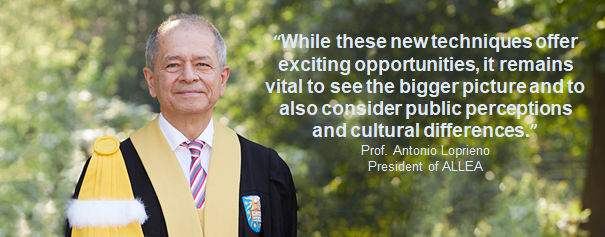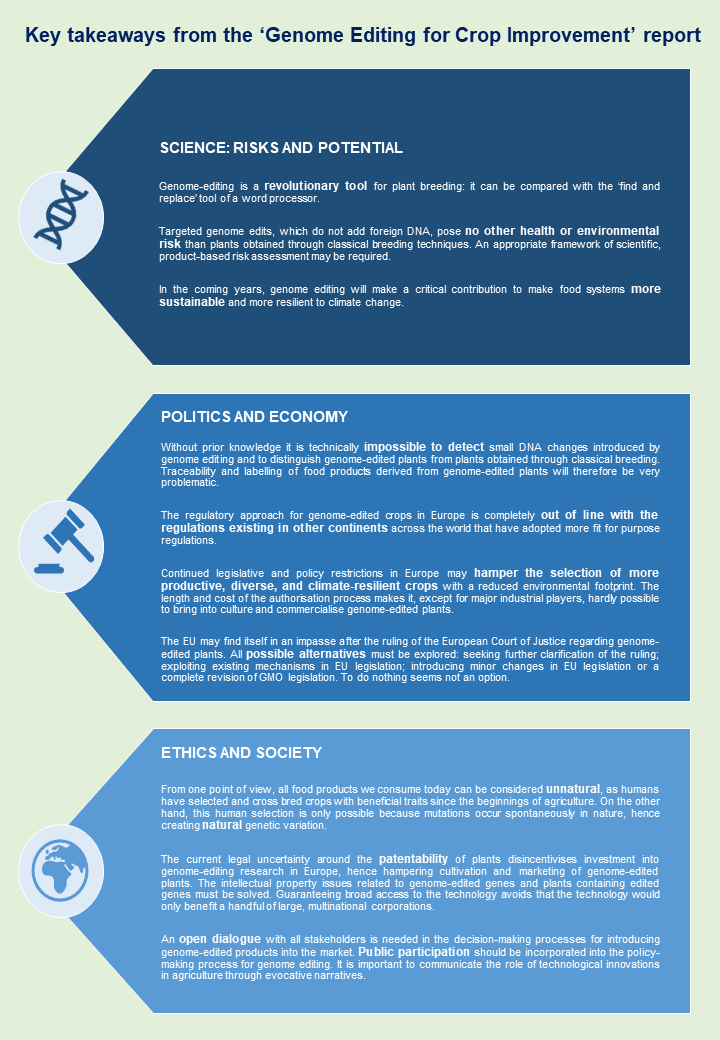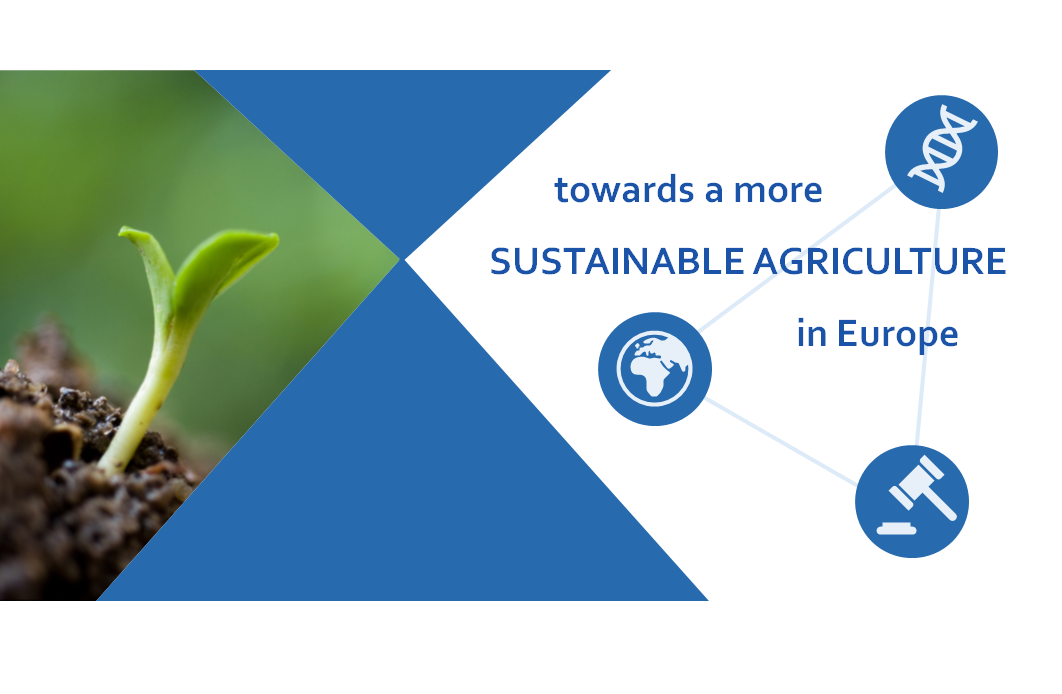Open debate between scientists, lawyers, ethicists, politicians and policymakers brings Europe one step closer to sustainable agriculture
The European’s Court of Justice (ECJ) ruling is widely interpreted that genome-edited crops fall under the Genetically Modified Organisms (GMO) legislation. As a reaction to this ruling, ALLEA, the Royal Flemish Academy of Belgium for Science and the Arts (KVAB) and Dirk Inzé (coordinator of the EU-SAGE network), organised a public symposium, entitled ‘Genome Editing for Crop Improvement’ (November 2019, Brussels). They invited scientific experts, policymakers, politicians and civil-society organisations to assess and discuss the impact of the ruling on present and future research and developments in genome editing for plant breeding.

This new report provides a multifaceted overview of the state-of-the-art scientific evidence with respect to safety of genome-edited crops and their possible potential to provide solutions to current and future agricultural challenges. Issues related to intellectual property and traceability of genome-edited crops and how this will likely affect international trade of food and feed, are also addressed. The report explores paths to harmonise EU legislation with recent scientific developments, while particularly considering relevant ethical and societal facets.
This comprehensive overview on genome editing for crop improvement is presented to European policymakers and the public as a first step beyond the impasse and towards a more sustainable agriculture in Europe.
KVAB report, including recommendations for the Belgian government (Dutch)

